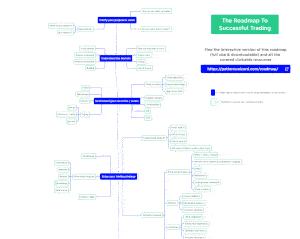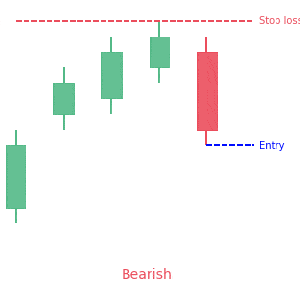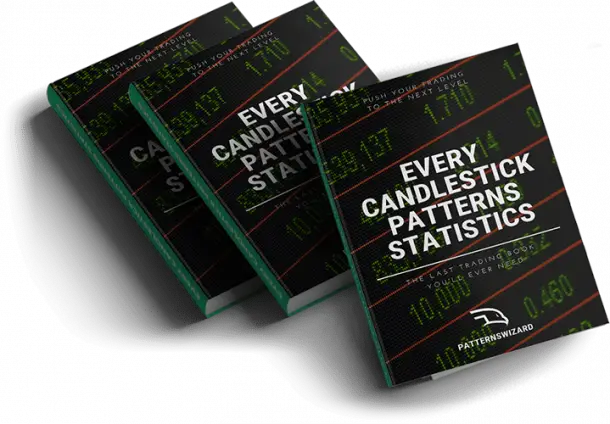Learning about selling puts for income is important for all options traders. A put option refers to an option contract where the holder has the right to sell a security at a specific price until a certain date. Moreover, you can also buy put options. It all depends on your trading strategy and how you anticipate the prices of the underlying securities.
If you want to learn all about selling puts for income then you are on the right platform at the right time. In this article, we are going to explain how to sell puts for income in any market state. We are going to discuss in detail everything you need to know about options contracts with a special focus on selling puts for income. Let’s begin right away.
What is an option?
An option is a financial instrument that allows traders to trade underlying security on the future value. When traders buy options, they pay a premium to get rights to trade underlying securities at a set price before a specific date of expiry. Options are similar to futures contracts. However, unlike futures contracts, options contracts don’t oblige traders to trade if they don’t want to.
Let’s try to understand how an options contract works. Suppose that you buy an options contract to buy a commodity at $1000 on 30 May 2022. If the price goes beyond $1000, you can exercise your right to buy that commodity at $1000. However, if the price stays below $1000 then there is no obligation to buy. It is important to note, however, that you’ll lose the premium paid for options contracts.
Why do options traders trade options?
Firstly, options contracts are a leveraged form of trading. That’s why they are attractive to traders. Secondly, there are a few certain reasons why traders trade options. Although there are other reasons as well, the majority of traders trade options for one or more of the following reasons.
1. Limiting risk by hedging
The majority of traders use options as hedging tools. In fact, options were first introduced as a hedging tool. How do you limit risk by hedging through options? Let’s try to understand it through an example. Suppose that you have stocks of a company and are worried that its price might decline in the coming months. Now, you can buy an option contract to sell your stocks at the best possible price such as close to their current price. Thus, you can limit your losses if the stock price falls. Conversely, you will lose the cost of buying options if the stock price increases.
2. Extending time to make investment decisions
Another best use of options contracts is that they enable traders to buy time to decide whether buying particular security is worthwhile or not. For example, if you want to buy stocks of a company you are currently not sure about, you buy options contracts to buy it in the future before a specific date in the future. Thus, you can exercise your options contracts in the future to buy stocks of that company. Contrarily, if you decide not to buy stocks, you’ll lose the cost of buying options.
3. Options as tools for price speculation
Options are also the best tools for price speculation as options trading prices depend on a number of factors. For example, the price of an options contract depends on the time left to exercise trading rights, the price of the underlying security, etc. That means traders often buy options not to exercise their rights of selling or buying underlying securities. Conversely, they buy option contracts to sell them in the future when their premium increases.
Two types of options contracts
There are two types of options contracts – call options and put options.
- Call options give the holder the right to buy the underlying security at a predetermined price before specific expiry date.
- On the other hand, put options give the holder the right to sell the underlying security at a predetermined price before a specific expiry date
Selling puts for income
As you know, there are two types of options contracts. One is put options and the second is call options. Both types of options have their own strategies to make income. However, the main topic of this article is to help you understand selling put options for income.
Understanding selling puts for income
Before understanding selling put options for income, it is important to understand what is selling put options. A put option contract is a contract between a buyer and a seller that gives the buyer the right to sell underlying security to the option seller at a specific price before the expiry date. It is important to note that the buyer has the right but not the obligation to sell underlying security to the option seller. However, the seller must buy that security from the buyer at a specific price before a specific date.
That means sellers of put options can generate significant income by selling put options. However, they must be good at price speculation. If they correctly speculate that the price of the underlying security will go above the strike price before or on expiration, they can make money.
Basic things to know about selling puts for income
Selling put options for income also requires you to know some basics just like other trading strategies. Let’s see what are important things you need to keep in mind.
1. Collateral
Selling put options requires you to have enough collateral in your trading account. Collateral can be in the form of cash or margin. Why so? Because when you sell put options, you have an obligation to buy the underlying security at a specific price. Therefore, your broker requires you to have enough collateral in your trading account to ensure you can afford to buy.
2. Strike price
The strike price is the specific price at which you have the obligation to buy the underlying security.
3. Expiration date
The expiration date is the last date the buyer can exercise his/her right to sell underlying security to the seller.
4. Odds of profitability
Profitability is the outcome all traders seek. There is no point in trading without making profits. Therefore, it is important to consider the chances of making a profit when looking to sell put options for income.
How does selling puts for money work?
When someone sells put options, he/she has the obligation to buy the underlying security at the strike price. So, the seller makes money in case of security’s price increase as buyers don’t exercise their rights to sell. That means the seller earns the fee. Conversely, if the price of the security falls, the put seller incurs losses as he/she is obliged to buy the underlying security at an agreed-upon price.
Now, how do put sellers make a profit by selling put options for money? They make money by selling a lot of put options on securities they anticipate will rise in value. They do so on a consistent basis and hope that the fees they earn will offset occasional losses when prices fall.
Furthermore, there is another strategy that perfectly works for put sellers. They can maintain a balance by buying the same number of options contracts from some other put seller. That means, selling as well as buying the same number of options contracts. The difference is the profit for put sellers if the fee from the newly bought contracts is lower than the selling of options. However, this is the hedging strategy if traders think that the trade will go against them.
Out-of-the-money, At-the-money, and Cash-covered put option strategies
Out-of-the-money or OTM put option contract refers to an option contract where the price of the underlying security is above the strike price. So, there is a high probability that OTM options contracts will expire worthlessly. Whereas, At-the-money put option contract refers to an option contract where the price of the underlying security and the strike price is essentially the same. That means it is better to go for OTM options contracts as they generally have high chances of expiring worthless.
As options trading is a risky game, it is important to manage your risk carefully. The best way to earn money through selling options contracts is by choosing cash-covered options. It is a 2-part strategy that involves two steps. Firstly, you sell an OTM put option contract. Secondly, you need to have enough cash to buy the underlying security at the option’s strike price. Options traders use cash-covered strategies to hedge against sudden market drops. This strategy is viable because it gives traders the opportunity to buy stocks at lower than market price if the buyer exercises his/her right to sell the underlying security.
Selling puts for income – the wrap-up
Although selling put options for income isn’t the only way to make money in the market, it is a good strategy. Why is it a good strategy? Because it is a reliable strategy and it also gives you consistent income. Additionally, you can also use it to hedge against risks.
There are different strategies you can choose from. However, the cash-covered options strategy is most suitable as it gives you two ways to make money. Firstly, you can keep the premium if the buyer doesn’t assign the stock. Secondly, you can buy stocks at lower than market price and that is also beneficial, especially if you desire to own that stock.
However, it is also important to note that trading is an arena full of risks and uncertainties. It is important, therefore, to take steps with great care. Moreover, it is also better to take professional help if possible.

 Good Trading requires the Best Charting Tool!
Good Trading requires the Best Charting Tool!

 We loved Marwood Research’s course “Candlestick Analysis For Professional Traders“. Do you want to follow a great video course and deep dive into 26 candlestick patterns (and compare their success rates)? Then make sure to check this course!
We loved Marwood Research’s course “Candlestick Analysis For Professional Traders“. Do you want to follow a great video course and deep dive into 26 candlestick patterns (and compare their success rates)? Then make sure to check this course!